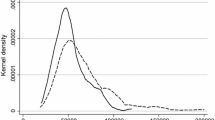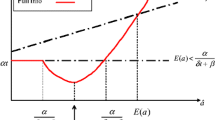Abstract
Little is known about the form and or magnitude of compensation provided university-based scientists working on firm R&D. This is unfortunate, given the important role that university-based scientists play in R&D, and the growing literature concerning compensation and innovation. This paper sheds some light on these issues by examining the compensation of university-based scientists involved with 52 biotech firms that made an initial public offering between March of 1990 and November of 1992. Although the stock holdings of the university scientists are of particular interest, additional forms of compensation received by the scientists are also examined.
We find that approximately 10 percent of the university-based scientists affiliated with these companies hold sufficient options or stock to require disclosure at the time of the public offering. A far larger proportion has an equity position in the firm. In many instances the scientists also receive consulting fees or salary from the firm and enter into licensing agreements with the firm. In addition to providing information concerning the compensation of university-based scientists, the empirical work suggests that the rewards to science can be significantly greater than previous work would suggest.
Similar content being viewed by others
References
Acs, Zoltan J. and David B. Audretsch, 1988, ‘Innovation in Large and Small Firms: An Empirical Analysis’, American Economic Review 78(4), 678–690.
Aghion, Philippe and Jean Tirole, 1994, ‘The Management of Innovation’, Quarterly Journal of Economics 109(4), 1185–1209.
American Men and Women of Science, 1992, 18th ed., New York: Bowker.
Audretsch, David B., 1995, Innovation and Industry Evolution, Cambridge: MIT Press
Audretsch, David B. and Paula Stephan, 1994, ‘Company-Scientist Locational Links: The Case of Biotechnology,’ American Economic Review 86(3), 641–652.
Black, Fischer and Myron Scholes, 1973, ‘The Pricing of Options and Corporate Liabilities,’ Journal of Political Economy 81(3), 637–654.
Blumenthal, David, Nancyanne Causino, Eric Campbell, and Karen Seashore Louis, ‘Relationships Between Academic Institutions and Industry in the Life Sciences — An Industry Survey’, The New England Journal of Medicine 334(6), 368–373.
Burrill, G. Steven, 1987, Biotech 88: Into the Marketplace, San Francisco, Ca: The Arthur Young High Technology Group.
Dasgupta, Partha and Paul A. David, 1987, ‘Information Disclosure and the Economics of Science and Technology’, in George R. Feiwel (ed.), Arrow and the Ascent of Modern Economic Theory, New York: New York University. Press, pp. 519–542.
Diamond, Arthur, 1990, ‘What is a Citation Worth?’ Journal of Human Resources 21(2), 200–215.
Hagstrom, Warren, 1965, The Scientific Community, New York: Basic Books.
Holmstrom, Bengt, 1989, ‘Agency Costs and Innovation’, Journal of Economic Behavior and Organization 12, 305–327.
Jensen, Michael C., 1993, ‘The Modern Industrial Revolution, Exit, and the Failure of Internal Control Systems’, The Journal of Finance 48(3), 831–880.
Kenney, Martin 1986, Biotechnology: The University Industrial Complex, New Haven: Yale University Press.
Kleinknecht, Alfred, 1989, ‘Firm Size and Innovation: Observations in Dutch Manufacturing Industries’, Small Business Economics 1(3), 315–222.
Lee, Kenneth B. and G. Steven Burrill, 1994, Biotech 95: Reform, Restructure, Renewal, Palo Alto, Ca: Ernst & Young.
Levin, Sharon G. and Paula E. Stephan 1991, ‘Research Productivity Over the Life Cycle: Evidence for Academic Scientists’, American Economic Review 81(1), 114–32.
Levy, David, 1988, ‘The Market for Fame and Fortune’, History of Political Economy 20(4), 615–625.
Mansfield, Edwin, 1995, ‘Academic Research Underlying Industrial Innovations: Sources, Characteristics, and Financing’, Review of Economics and Statistics 77(1), 55–65.
Merton, Robert, 1957, ‘Priorities in Scientific Discovery: A Chapter in the Sociology of Science’, American Sociological Review 22(6), 635–659.
Rothwell, Roy, 1989, ‘Small Firms, Innovation and Industrial Change’, Small Business Economics 1(1), 51–64.
Rosovsky, Henry, 1990, The University: An Owner's Manual, New York: W.W. Norton.
Stephan, Paula E., 1994, ‘Differences in the Post-entry Value of Biotech Firms: The Role of Human Capital’, Paper presented at a Conference on the Post-entry Performance of Firms, Lisbon, May 27–28, 1994.
Stephan, Paula E., 1996, ‘The Economics of Science’, Journal of Economic Literature 34(3), September.
Stephan, Paula E. and Sharon G. Levin, 1992, Striking the Mother Lode in Science: The Importance of Age, Place and Time, New York: Oxford University Press.
Stephan, Paula E. and Sharon G. Levin, 1996, ‘Property Rights and Entrepreneurship in Science’, Small Business Economic 8(3), 177–188.
Tuckman, Howard, 1976, Publication, Teaching and the Academic Reward Structure, Lexington, Ma: Lexington Books.
Tuckman, Howard and Jack Leahey, 1975, ‘What is an Article Worth?’, Journal of Political Economy 83(5), 951–967.
Wolpert, Lewis and Alison Richards, 1988, A Passion for Science, New York: Oxford University Press.
Zucker, Lynne G., Michael R. Darby and Jeff Armstrong, 1994, ‘Intellectual Capital and the Firm: The Technology of Geographically Localized Knowledge Spillovers’, Cambridge, Ma: National Bureau of Economic Research, working paper no. 4946.
Author information
Authors and Affiliations
Rights and permissions
About this article
Cite this article
Stephan, P.E., Everhart, S.S. The Changing Rewards to Science: The Case of Biotechnology. Small Business Economics 10, 141–151 (1998). https://doi.org/10.1023/A:1007929424290
Issue Date:
DOI: https://doi.org/10.1023/A:1007929424290




